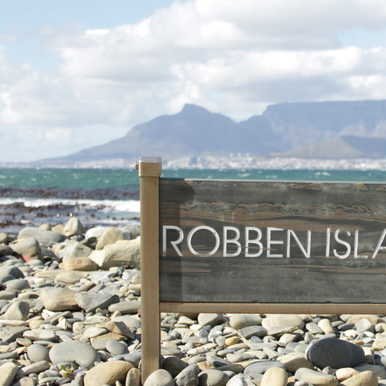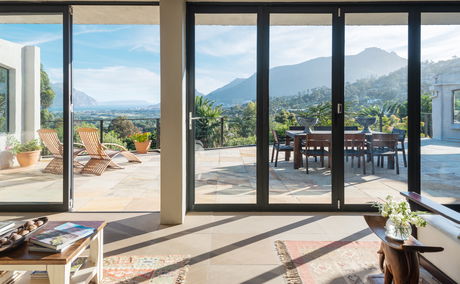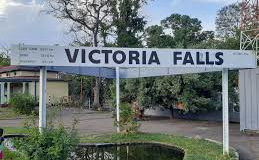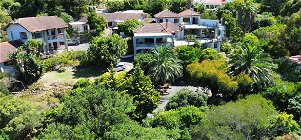Family-centric venue offering a rock shop with vibrant minerals, gem digging & indoor mini golf. Service options: In-store shopping Address: Dido Valley Rd, Simon's Town, Cape Town, 7995 Hours: Open ⋅ Closes 4:45PM Health and safety: Mask required · Staff wear masks · Staff get temperature checks · More details Products and services: scratchpatch.co.za Phone: 021 786 2020
Robben Island

Robben Island
ROBBEN ISLAND
Since the end of the 17th century, Robben Island has been used for the isolation of mainly political prisoners. The Dutch settlers were the first to use Robben Island as a prison. Its first prisoner was probably Autshumato in the mid-17th century. Among its early permanent inhabitants were political leaders from various Dutch colonies, including Indonesia, and the leader of the mutiny on the slave ship Meermin.
After the British Royal Navy captured several Dutch East Indiamen at the battle of Saldanha Bay in 1781, a boat rowed out to meet the British warships. On board were the "kings of Ternate and Tidore, and the princes of the respective families". The Dutch had long held them on "Isle Robin", but then had moved them to Saldanha Bay.[6]
In 1806 the Scottish whaler John Murray opened a whaling station at a sheltered bay on the north-eastern shore of the island which became known as Murray's Bay, adjacent to the site of the present-day harbour named Murray's Bay Harbour which was constructed in 1939–40.[7][8]
After a failed uprising at Grahamstown in 1819, the fifth of the Xhosa Wars, the British colonial government sentenced African leader Makanda Nxele to life imprisonment on the island.[9] He drowned on the shores of Table Bay after escaping the prison.[10][11]
The island was also used as a leper colony and animal quarantine station.[12] Starting in 1845 lepers from the Hemel-en-Aarde(heaven and earth) leper colony near Caledon were moved to Robben Island when Hemel-en-Aarde was found unsuitable as a leper colony. Initially this was done on a voluntary basis and the lepers were free to leave the island if they so wished.[13] In April 1891 the cornerstones for 11 new buildings to house lepers were laid. After the introduction of the Leprosy Repression Act in May 1892 admission was no longer voluntary and the movement of the lepers was restricted. Prior to 1892 an average of about 25 lepers a year were admitted to Robben Island, but in 1892 that number rose to 338, and in 1893 a further 250 were admitted.[13]
During the Second World War the island was fortified and BL 9.2-inch guns and 6-inch guns were installed as part of the defences for Cape Town.
From 1961, Robben Island was used by the South African government as a prison for political prisoners and convicted criminals. In 1969 the Moturu Kramat, which is now a sacred site for Muslim pilgrimage on Robben Island, was built to commemorate Sayed Abdurahman Moturu, the Prince of Madura. Moturu, who was one of Cape Town's first imams, was exiled to the island in the mid-1740s. He died there in 1754. Muslim political prisoners would pay homage at the shrine before leaving the island.
The maximum security prison for political prisoners closed in 1991. The medium security prison for criminal prisoners was closed five years later.[14]
With the end of apartheid, the island has become a popular destination with global tourists. It is managed by Robben Island Museum (RIM); which operates the site as a living museum. In 1999 the island was declared a World Heritage Site. Every year thousands of visitors take the ferry from the Victoria & Alfred Waterfront in Cape Town for tours of the island and its former prison. Many of the guides are former prisoners. All land on the island is owned by the country of South Africa with the exception of the island church. It is open all year around, weather permitting
Robben Island Museum
· Room PO Box 51806, V&A Waterfront, Cape Town, 8002
· Phone +27 (0) 21 409 5100
· Print +27 (0) 21 419 1057
· E mail: infow@robben-island.org.za
· http://www.robben-island.org.za/
Further Reading
Victorskloof Lodge is proud to present Victorskloof Retreats. Situated high on the slopes over looking the picturesque Hout Bay Valley, The setting is a secure and tranquil. An ideal location for you to host your own retreat or be a participant in the wide range of retreats on offer.
THE TWO ICONIC SOUTHERN AFRICAN DESTINATIONS: CAPE TOWN AND VICTORIA FALLS. AFTER THE CAPE, EXPLORE ZAMBIA & BEYOND WITH SHAMBA TOURS Lets us take care of all your travel arrangements at Victoria Falls, throughout Zambia and the neighbouring region. We also offer best value flight and car hire booking services worldwide. Our services include: Safaris All types of accommodation Flights Vehicle hire Group bookings Incentive tours and more We offer personalized service...




Share This Post